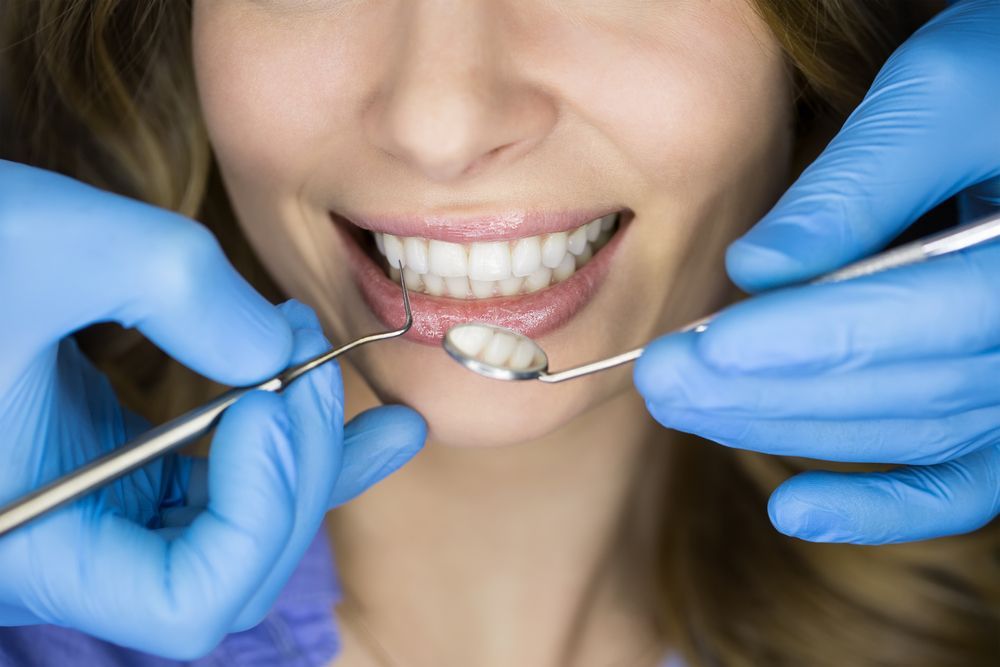Dental Phobia And Anxiety: Everything You Should Know
- By Rabel Dentistry
- •
- 22 Aug, 2023

For many, a visit to the dentist's office conjures feelings of nervousness or unease. However, for some individuals, dental appointments trigger intense anxiety and fear, leading to a condition known as dental phobia or dental anxiety.
This emotional response can be so overwhelming that it prevents individuals from seeking necessary dental care, potentially compromising their oral health and overall well-being. Let's dissect everything you should know about dental phobia and anxiety, exploring its causes, effects, and crucially, ways to manage and overcome them.
Overview
Dental anxiety is the anxiety, concern, or stress that people feel when they have to go to the dentist. It happens to a lot of people. Needles, drills, and the dental office itself are just a few of the many triggers that cause people to avoid the dentist. Depression, post-traumatic stress disorder (PTSD), other forms of mental illness, and previous instances of head and neck trauma have all been linked to an elevated risk of dental anxiety.
Dental phobia, also called odontophobia, is an extreme fear or illogical worry about dental treatments. Extreme anxiety about going to the dentist can lead to panic attacks and preventive measures like psychiatric evaluation and treatment may be needed.
Those who suffer from dental fear often feel a sense of helplessness and distress at the mere notion of visiting the dentist. Even though they might be in discomfort, individuals with dental phobia often put off or cancel necessary dental care.
Causes
Fear of pain is a major contributor to the development of dental phobia. Some people are afraid of going to the dentist or getting an injection because of a negative experience they had in the past.
Some people fear the dentist because they anticipate or project terrible experiences they've heard from friends and relatives. Small children and teenagers may be more sensitive to dental procedures because of their inexperience and, potentially, their fear of pain.
Many people suffer from anxiety due to their perception of being helpless. You are forced to sit in a chair with your hands tied behind your back, your eyes covered, and your mouth wide open. For many people, this sensation is exacerbated when a stranger is operating near their face.
Several mental health issues, including generalized anxiety disorder, claustrophobia, agoraphobia, and obsessive-compulsive disorder can exacerbate dental phobia. A fear of the dentist might also develop if an individual mimics the fearful actions of others, hears horror stories about other people's dental experiences, or has a history of dental phobia in their own family.
Signs and Symptoms
Dental anxiety and fear can cause various symptoms from minor to severe, depending on the individual. Sweating, chills, dizziness or lightheadedness, heart palpitations, nausea/vomiting, shortness of breath/trembling/shaking, upset stomach, and inability to sleep the night prior to a dentist appointment are all symptoms of dental fear.
People with dental phobia sometimes experience intense emotional fear and anguish when confronted with the prospect of actually going to the dentist. They may become upset just thinking about going to the dentist or crying during the procedure if they are anxious about having foreign objects in their mouths. Some people may even feel like they can't breathe normally.
Management
People with dental anxiety may benefit from learning relaxation techniques like deep inhalation and progressive muscle relaxation. Dental anxiety can be alleviated with various techniques, including guided imagery and distraction. Medical treatment for dental anxiety or phobia may be necessary in severe circumstances.
"Happy gas," or nitrous oxide, is a frequent medical treatment. An oxygen/nitrous oxide mask is used to assist patients to feel more at ease during dental procedures. Dentists and doctors can prescribe anxiety drugs to patients to help them calm down before dental procedures.
Preventative measures are essential for easing dental anxiety. By going in for checkups regularly, dental problems can be addressed before they worsen, cutting down on the need for invasive operations and the associated discomfort.
Consult your dentist if you feel anxious or fearful before a visit. Contact us at Rabel Family Dentistry for your dentist needs in Baton Rouge, LA.
CONTACT INFORMATION
3114 Groom Road Baker, LA 70714
Phone:
225-775-0160
Email:
drbrett@lakeshorecapital.biz
PAYMENT OPTIONS






CareCredit
BUSINESS HOURS
- Mon - Fri
- -
- Saturday
- -
- Sunday
- Closed
*Our phones are monitored 24/7
Interest-Free Payment Plans
We partner with a third party ad network to either display advertising on our Web site or to manage our advertising on other sites. Our ad network partner uses cookies and Web beacons to collect non-personally identifiable information about your activities on this and other Web sites to provide you targeted advertising based upon your interests. If you wish to not have this information used for the purpose of serving you targeted ads, you may opt-out by clicking here . Please note this does not opt you out of being served advertising. You will continue to receive generic ads.
